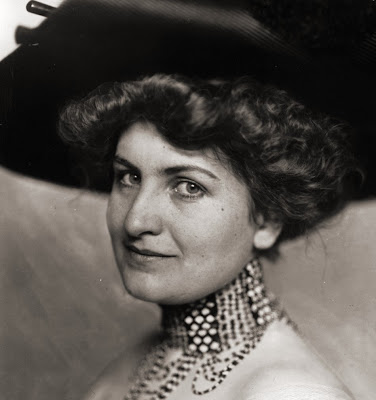Conductors have to try to help the composer
But a masterpiece comes when you must be convinced that’s a masterpiece, and I make sure that’s a masterpiece. If you play a very boring performance of the Glazunov Number Six or Number Seven, people will be saying it’s not a masterpiece. You must convince them that’s a masterpiece, and there’s a lot of masterpieces which people don’t know. It’s my idea that we should not to be with only this great stuff of repertoire, which basically everyone conducts. You know them exactly and you love them, this Brahms Symphony Number Four; you love all Brahms’ music. Of course you want to explore very much, but you’re doing it anyway. But that’s a masterpiece. I had to discover the meaning of other composers which are around that did not write a masterpiece. It’s second rate music or third rate music, but don’t tell that to anyone. Try to convince people that’s not. Every conductor says that Glazunov’s music is second rate music or third rate music, but I don’t think so. This kind of ballet music, like Raymonda or the Seasons... or Le Sacre du Printemps or a tone poem like La Mer — only a great composer can create these things.That is Neeme Järvi talking to Chicago based journalist and radio presenter Bruce Duffie. The interview from 1987 was flagged up on Facebook by Alexander Colding Smith as a contribution to yesterday's post about the neglect of Alan Hovhaness' music. Neeme Järvi was replying to the question "What is it about a masterpiece that makes it a masterpiece?" and I want to develop this thread by asking another question: "What is it about a great conductor that makes it a great conductor?"
We have to try to help the composer because basically, nothing is written here — only the notes. It’s only notes and words like poco ritardando, andante, allegro moderato, accented, something, something, ritenuto, meno mosso — it doesn’t say very much. Are we making music? I have to help composers. I can’t make the notes on the page. It’s only some certain line of notes written down, but you have to interpret them, and that interpretation is the main thing which we have to do. If we can’t do that, we can’t say it’s a masterpiece.
Today conductors are judged to be great or otherwise by their interpretations of recognised masterpieces - notably the symphonies of Mahler, Shostakovich and Sibelius. Beyond this narrow band of masterpieces the repertoire is increasingly limited to token new music commissions, preferably with media appeal and not too long. Specific current circumstances are exacerbating the narrowing of the repertoire. One of these is the collapse of the record company patronage that resulted in back-to-back concert and studio performances of niche repertoire, another is the damaging obsession with composer anniversaries. But it does not have to be so as Neeme Järvi has proved: in the interview, as well as Glazunov's music, he advocates that of Johan Svendsen, Niels Gade, Wilhelm Stenhammar, Eduard Tubin, Howard Hanson, Walter Piston, Paul Creston and Amy Beach.
The assertion that we must try to help the composer is very revealing. Because, today, too many celebrities see the composer as the person who helps them to a contract with a super agent, lucrative tours of China and the United Arab Emirates, and endorsement contracts with Rolex and Bugatti. But it wasn't always like that. In a post back in 2005 I analysed the Berlin Philharmonic programmes conducted by Wilhelm Furtwängler between 1923 and 1944. During that period, and despite the latter years being the dark age of Entartete Musik, no less forty-four substantial new works from twenty-seven contemporary composers were played under Furtwängler - see the full list via this link. Another post in the same year pointed out that while music director of the New York Philharmonic, John Barbirolli conducted music by, among others, Daniel Gregory Mason, Joseph Deems Taylor, Abram Chasins, Samuel Barber, Ernst Toch, Arkady Dubensky, Charles Wakefield Cadman, Quinto Maganini, Gardner Read, Charles Griffes, Quincy Porter, Lucien Cailliet, Paul Creston, Jacques Ibert, and Eugene Goosen. Even the notoriously self-interested Herbert von Karajan strayed from the path of established masterpieces, with his advocacy of Arthur Honegger's Second Symphony and Symphonie Liturgigue (no. 3) ranking as one of the great achievements of the gramophone.
The argument that non-mainstream music results in empty seats is a spurious one. Is the main purpose of great art to put posteriors on seats? Empty seats in concert halls are caused by an oversupply of classical music, not misguided programming. Playing more and more Mahler, Shostakovich and Sibelius is just another short-term solution that does not solve the long-term problem of oversupply. Taking the painful but very necessary steps to bring music supply and demand back inline is the only viable long-term solution. By programming a wide and inclusive repertoire, a few visionary conductors and are not only helping composers. More importantly, they are ensuring the future of classical music by helping audiences understand that there are many masterpieces outside the narrow range of music that is the staple of today's celebrity circuit.
Also on Facebook and Twitter. Any copyrighted material is included as "fair use" for critical analysis only, and will be removed at the request of copyright owner(s).









Comments
The future of music lies in the commitment to the found treasure of our music, rather than the dissipation of energy devoted to a career. Yet I fear that established priorities forbid, prevent, and exclude many of us from the opportunities vital to demonstrating that essential truth.